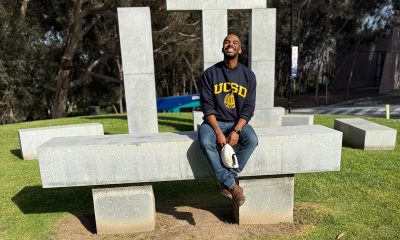Arts & Entertainment
Shadows of war
Compelling character study crackles at Signature
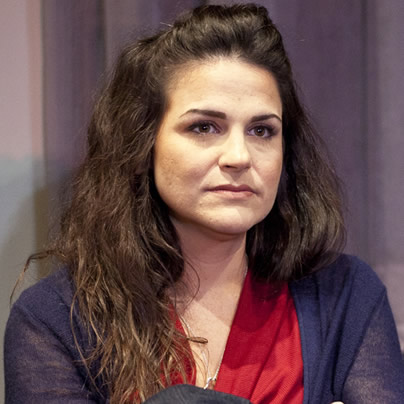
‘Dying City’
Signature Theatre
Through Nov. 25
4200 Campbell Ave.,
Arlington, VA
$39-$75
703-820-9771
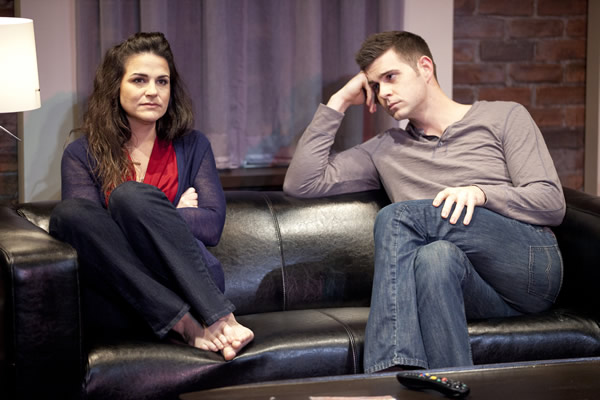
Rachel Zampelli as Kelly and Thomas Keegan as Peter in ‘Dying City,’ a charged drama playing at Signature through Nov. 25. (Photo by Scott Suchman, courtesy Signature Theatre)
In gay playwright Christopher Shinn’s quietly compelling “Dying City” (now making its D.C. premier in a smart, effective production at Signature Theatre), a trio of young characters negotiate emotional battlefields in the shadow of the Iraq War.
Set in New York, far from Baghdad, the play begins with Kelly (an aptly reserved Rachel Zampelli) watching TV alone in her comfortable New York City apartment (compliments of set designer Daniel Conway) when suddenly she receives an unexpected and not wholly welcomed evening visitor. It’s Peter (Thomas Keegan), the identical twin brother of her late husband Craig, a Harvard graduate student who was killed the previous year during military service in Iraq. Kelly and Peter haven’t spoken since the funeral.
A successful Hollywood actor in town doing theater (O’Neill’s classic portrait of family dysfunction, “Long Day’s Journey Into Night”), Peter is all ingratiating charm as he coaxes Kelly, a therapist, to talk about their shared loss. Guarded and at times visibly anguished, Kelly reluctantly enters into conversation. Together, they revisit the night before Craig’s departure for training camp in Georgia, the murky circumstances surrounding his death and their disparate backgrounds (Kelly’s rich parents were emotionally absent, the twins’ father was a violent Vietnam vet and their mother held ambitions for her sons to escape the confines of their modest Midwestern upbringing).
An intimate play, “Dying City” is ideal for the Ark, Signature’s smaller black box. The fast-paced drama’s action alternates between Peter and Kelly’s strained visit and flashback scenes involving Kelly and Craig (also played by brawny Keegan). This casting trick requires a lot of quick exits and entrances. Fortunately, gay director Matthew Gardiner’s shrewd staging along with Colin K. Bills’ lighting and Matt Rowe’s transporting sound design make time travel smooth and not the least bit hokey. By changing shirts and adding a little swagger, Keegan morphs from the more effusive, self-absorbed Peter to his butcher, more reticent straight brother Craig.
Slowly, Kelly becomes more comfortable. The in-laws are getting along. Conversation strays to backstage gossip and the latest on Peter’s tumultuous love life. But when Peter unexpectedly pulls out a cache of beautifully crafted emails sent to him from Craig while in Iraq, the intentions of Peter’s visit become suspect. While both Kelly and Peter have always dismissed the Iraq War as destructive and senseless adventure, the once pro-war Craig demonstrates in his eloquent missives that during the last days of his life, he joined the anti-war ranks with his brother and wife. Other revelatory passages (but less well-received by Kelly) come to light as well. Layers of truths and untruths, and who knew what when, are explored.
Since her husband’s death, Kelly spends a lot of time holed up at home watching TIVOed episodes of “Law and Order.” After seeing scores of episodes, she has figured out the secret to the cop show’s success: Kelly believes that people find comfort in the idea being remembered after their death. We like the notion that if we’re murdered, a team of detectives and forensic experts will convene to remember us and give closure. Nothing about Craig’s death has been neatly closed. And while Kelly’s future is uncertain, she seems to be getting stronger.
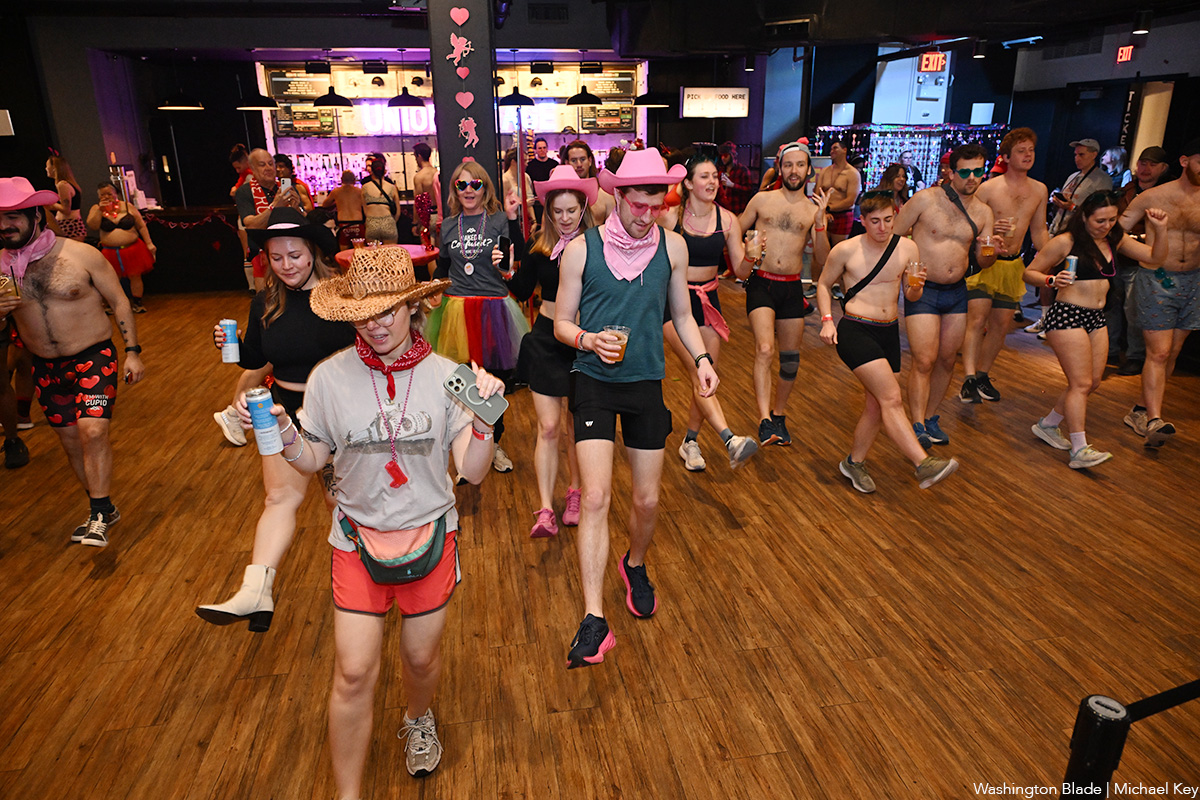
Cupid’s Undie Run, an annual fundraiser for neurofibromatosis (NF) research, was held at Union Stage and at The Wharf DC on Saturday, Feb. 21.
(Washington Blade photos by Michael Key)
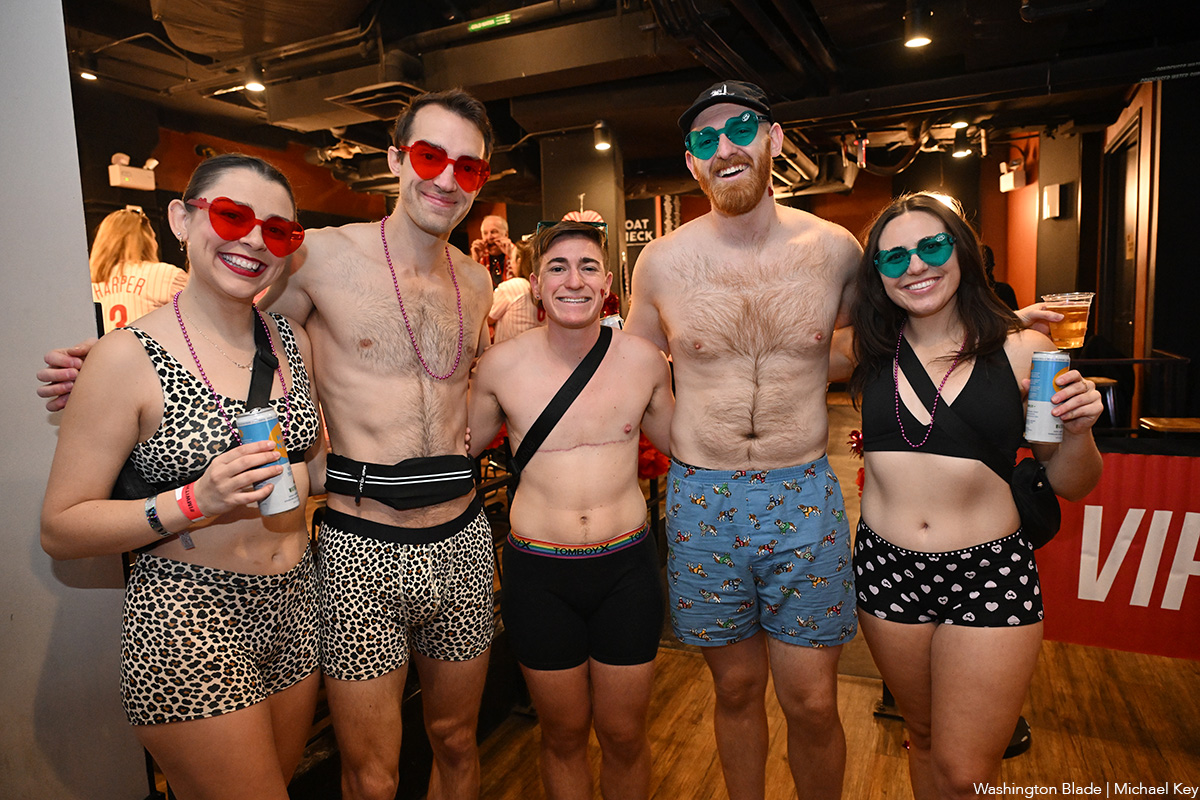
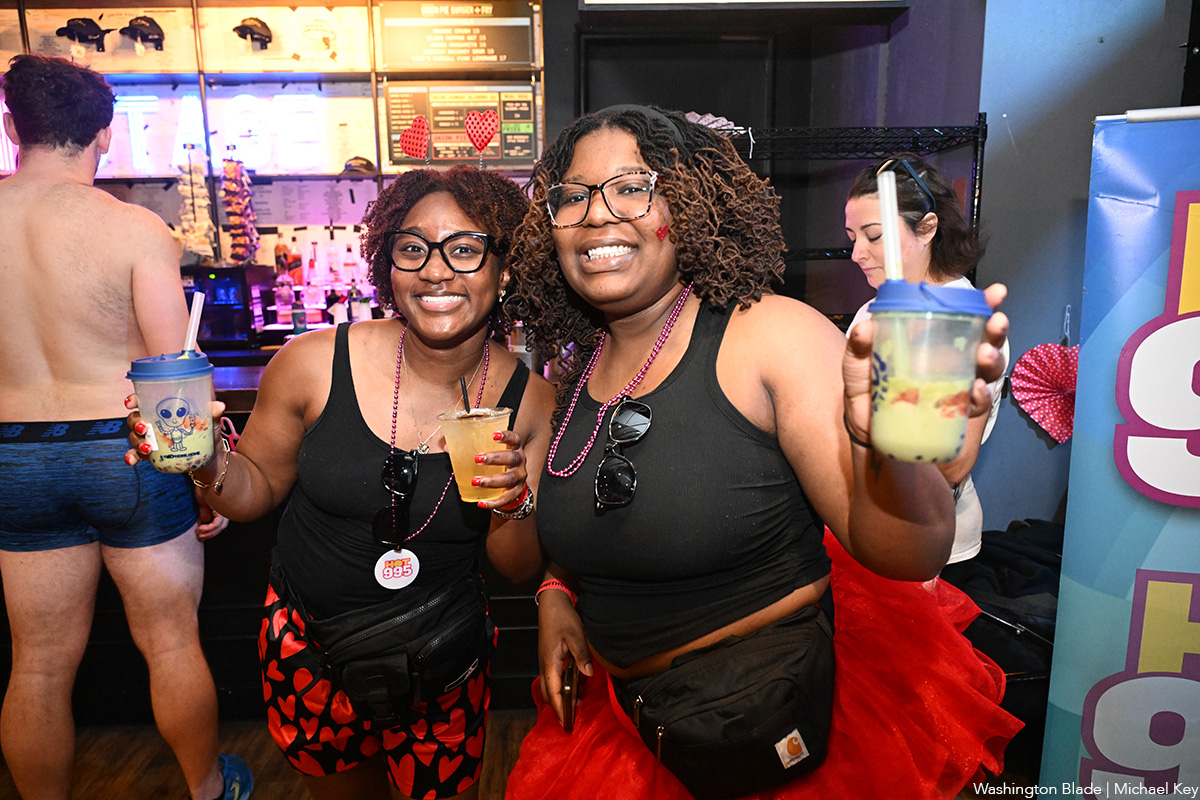
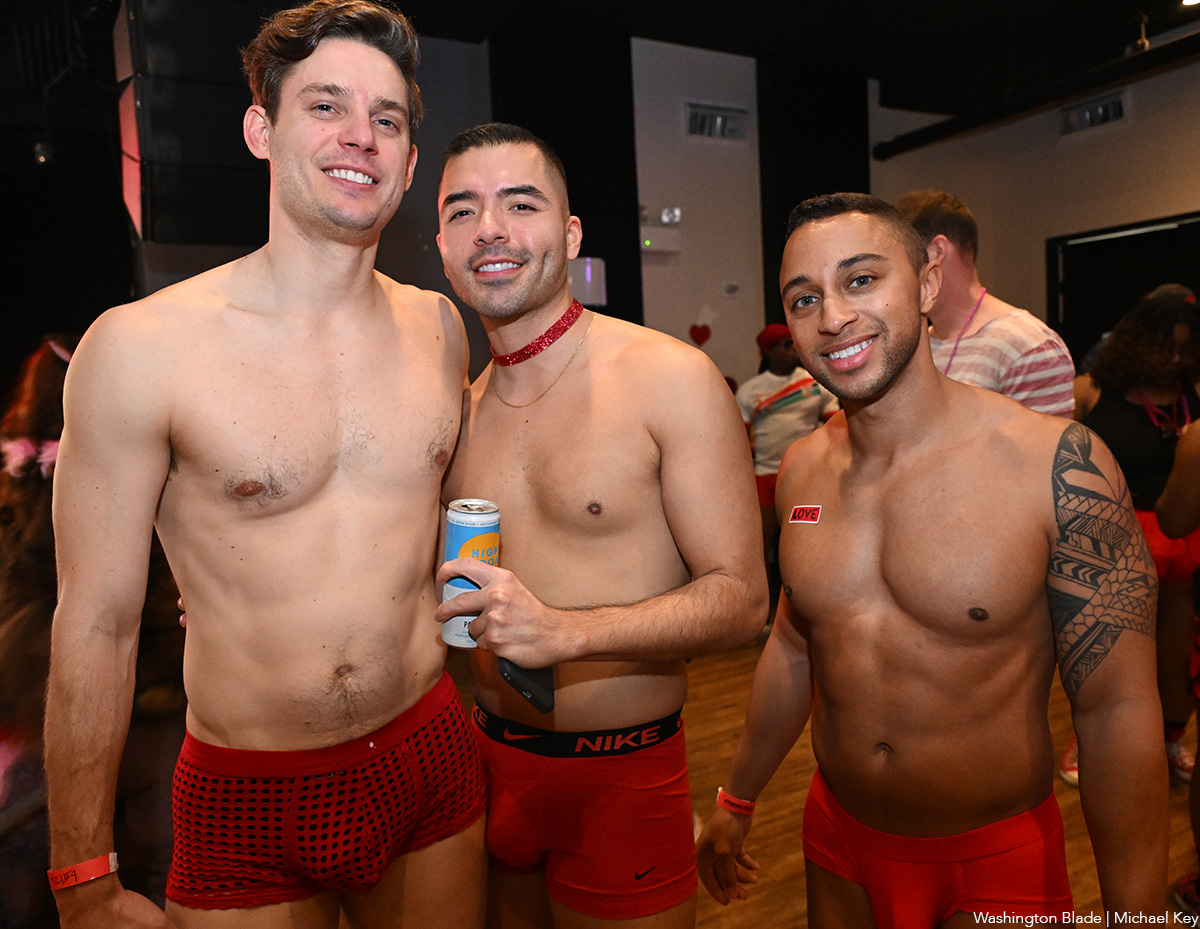
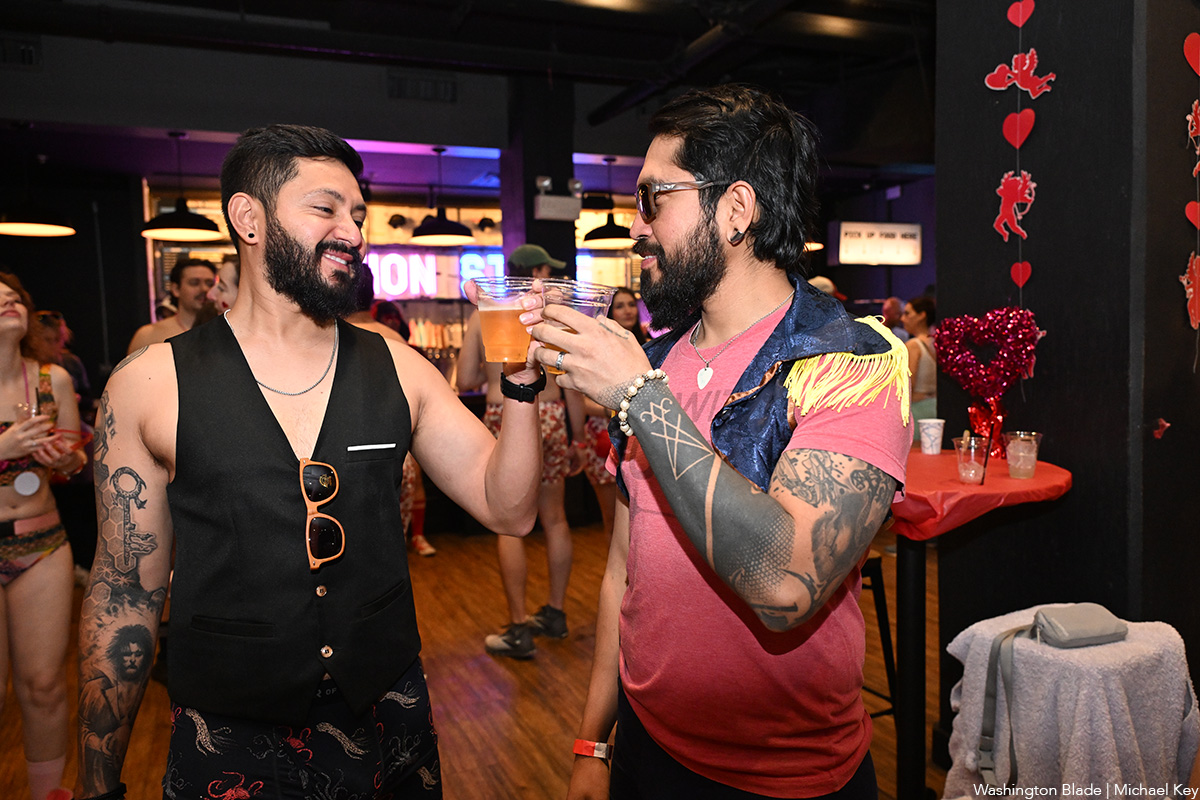
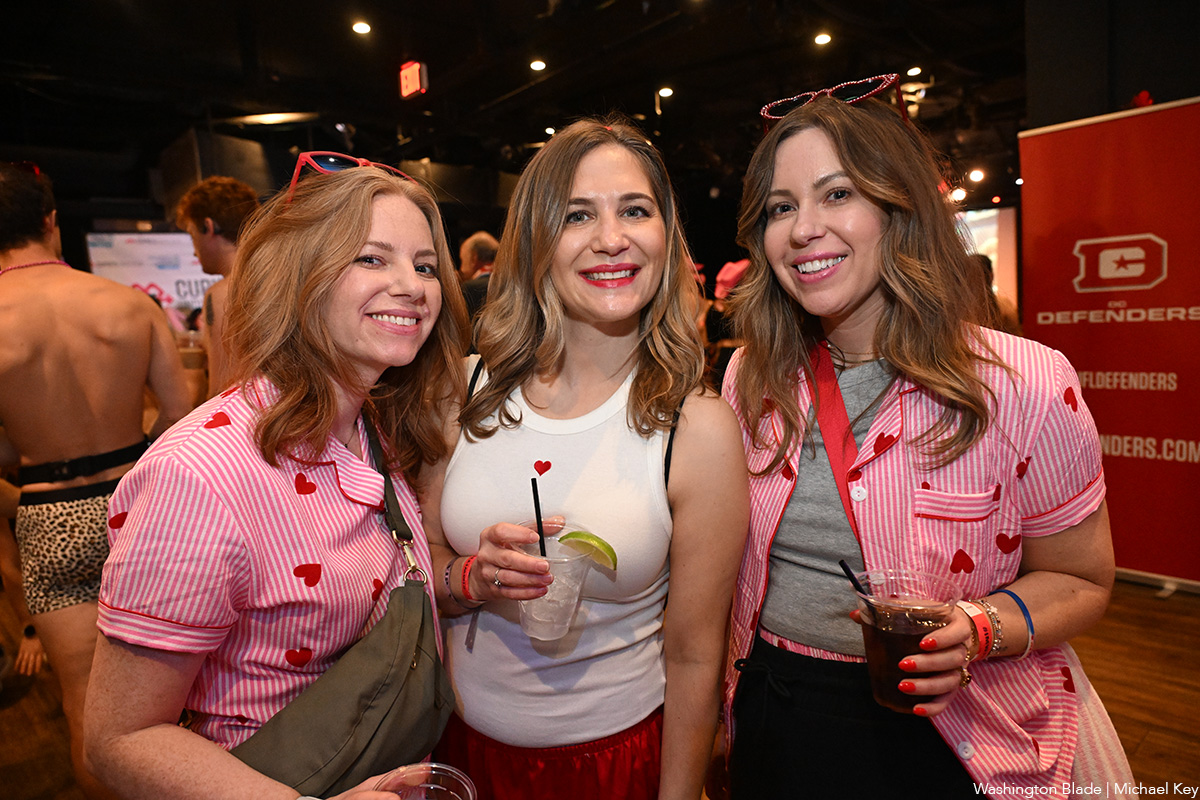
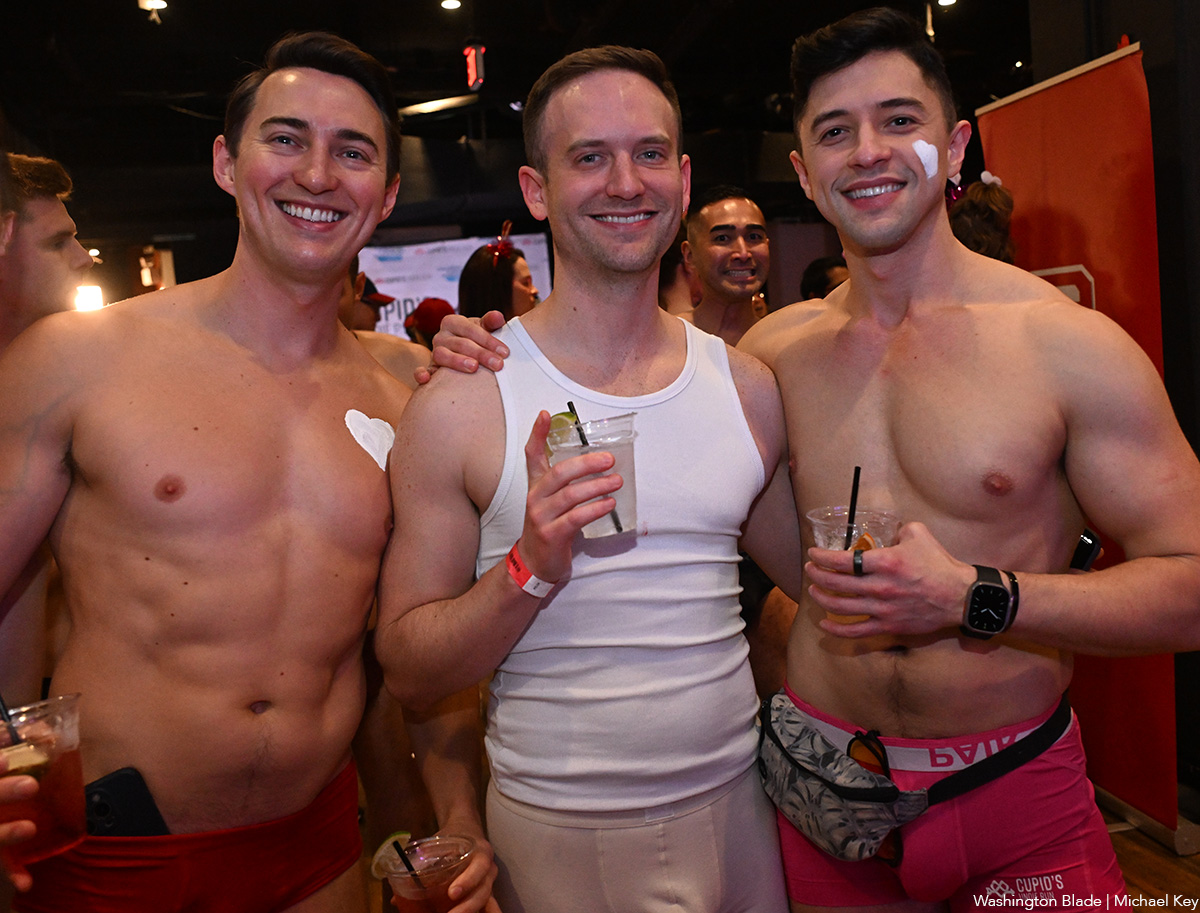
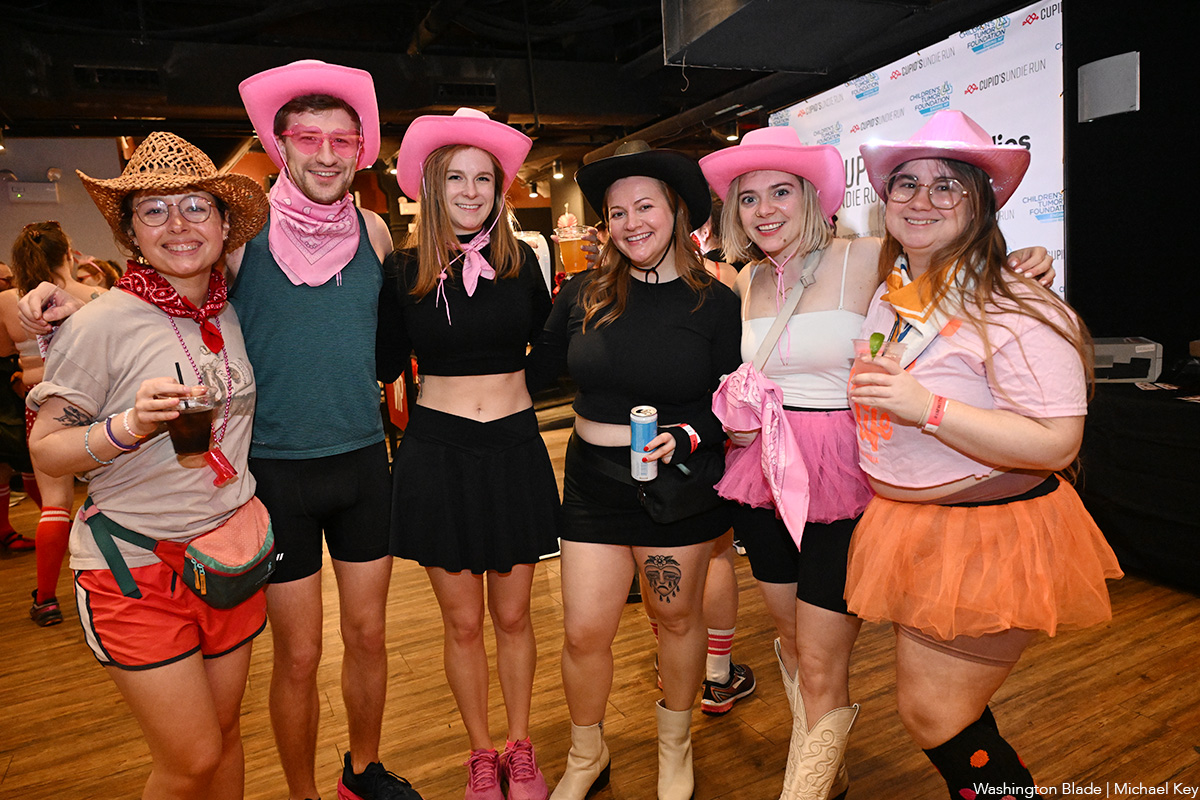
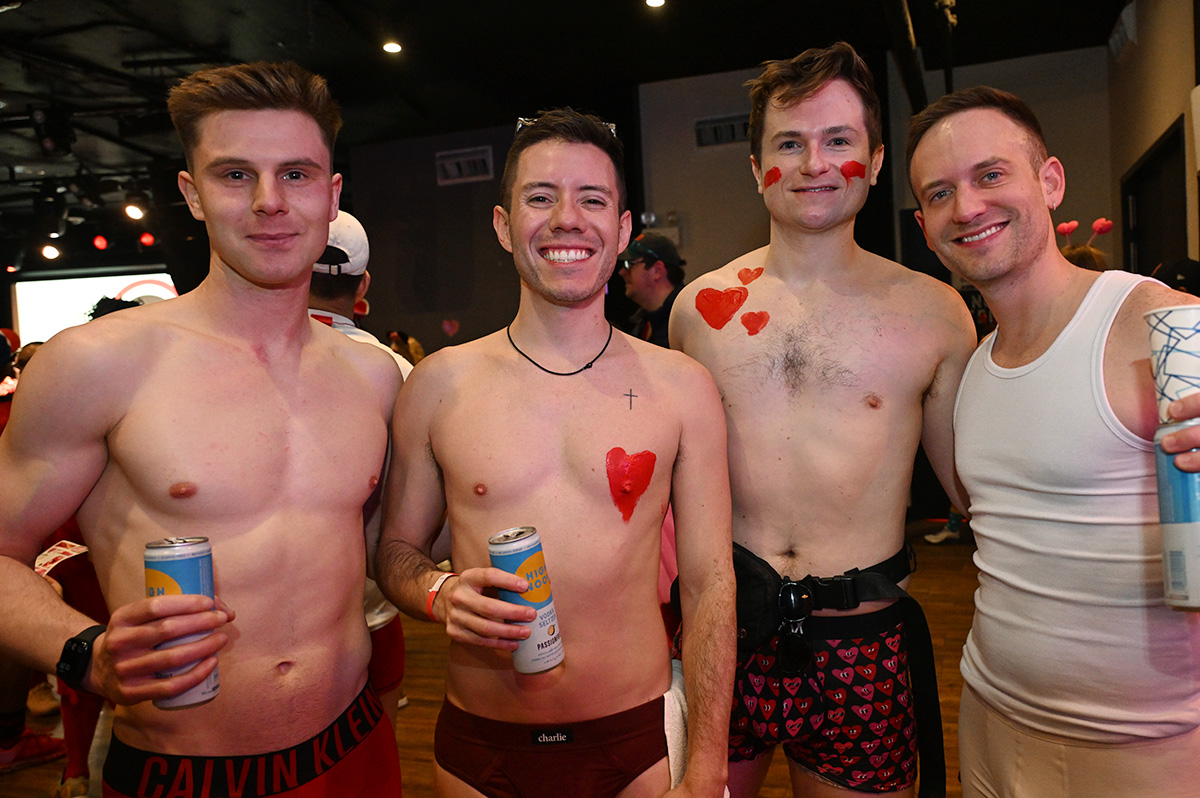
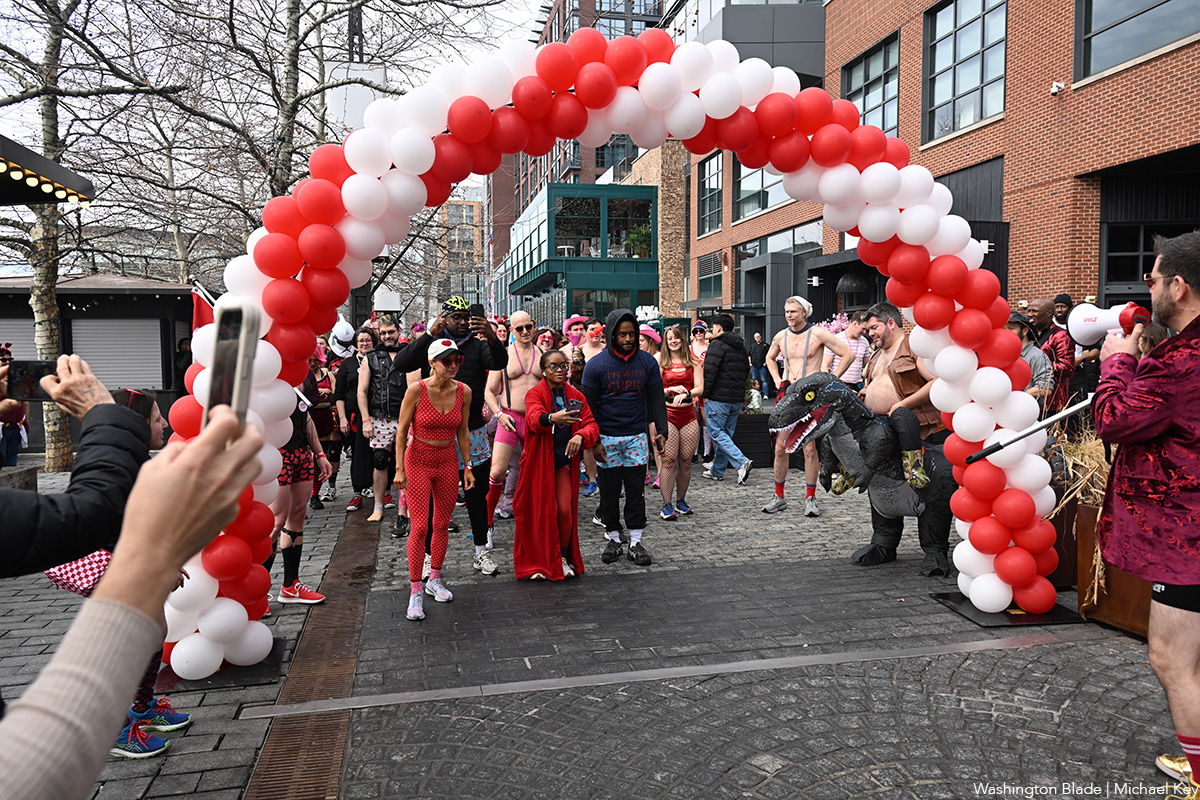
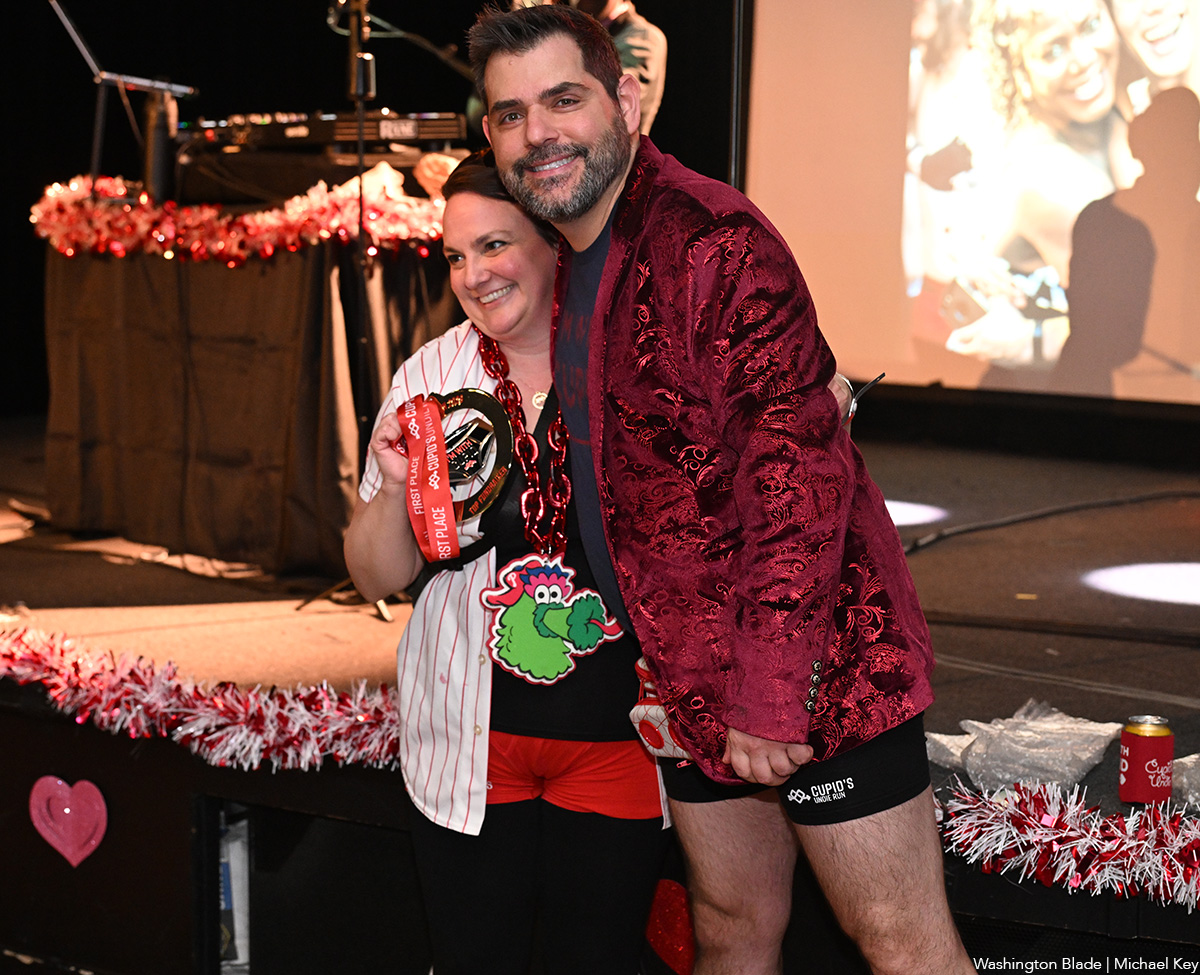
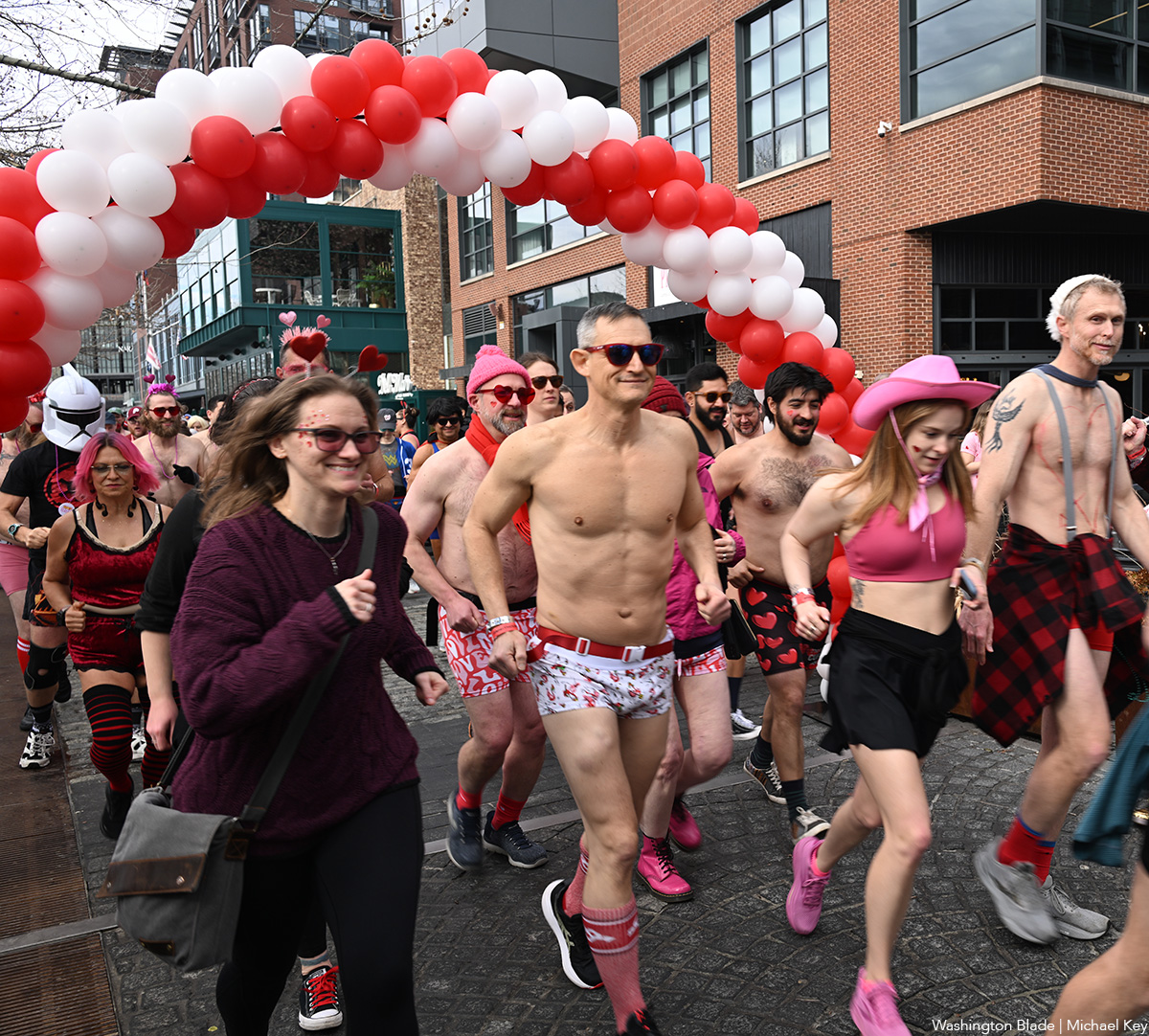
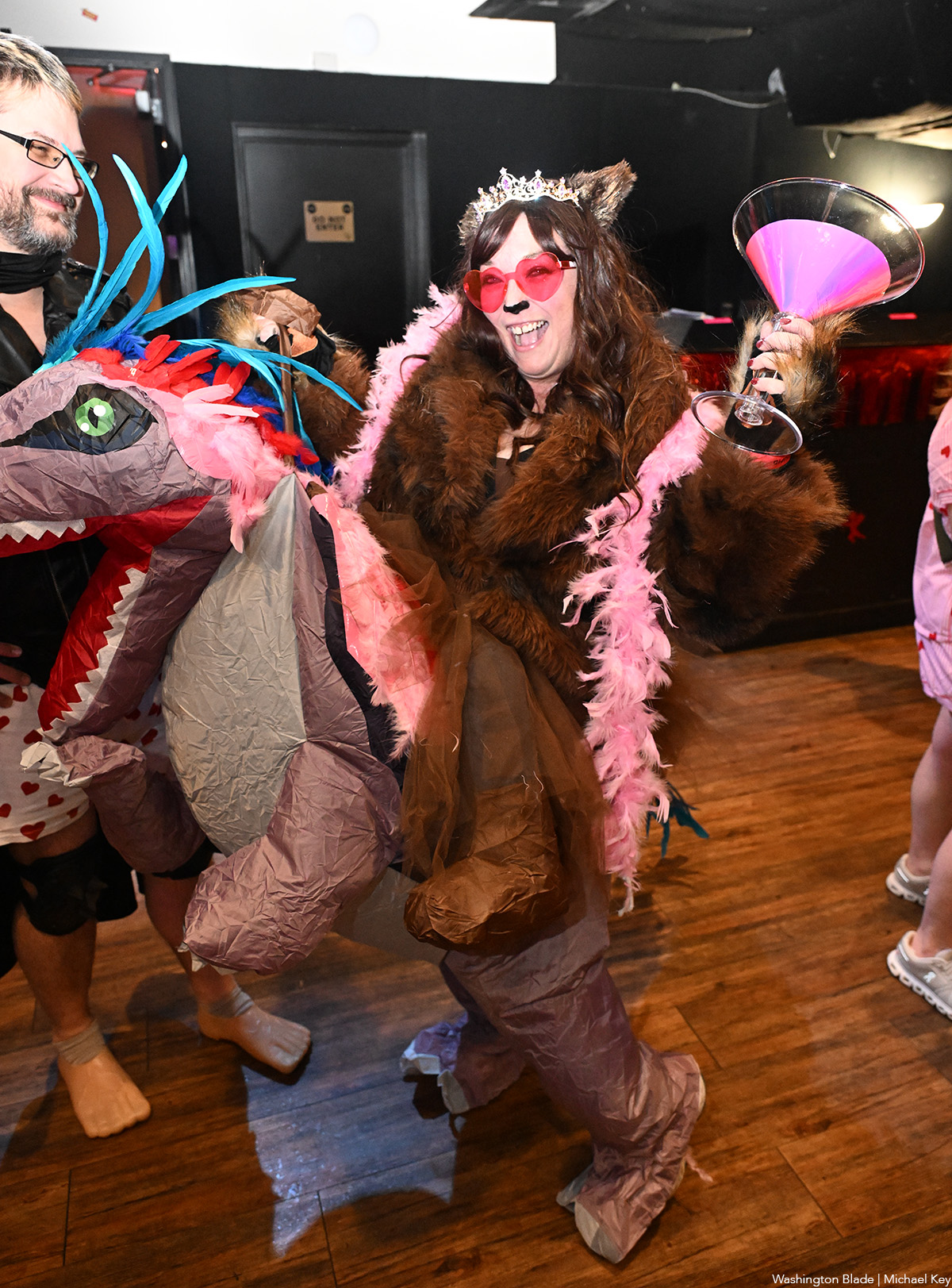
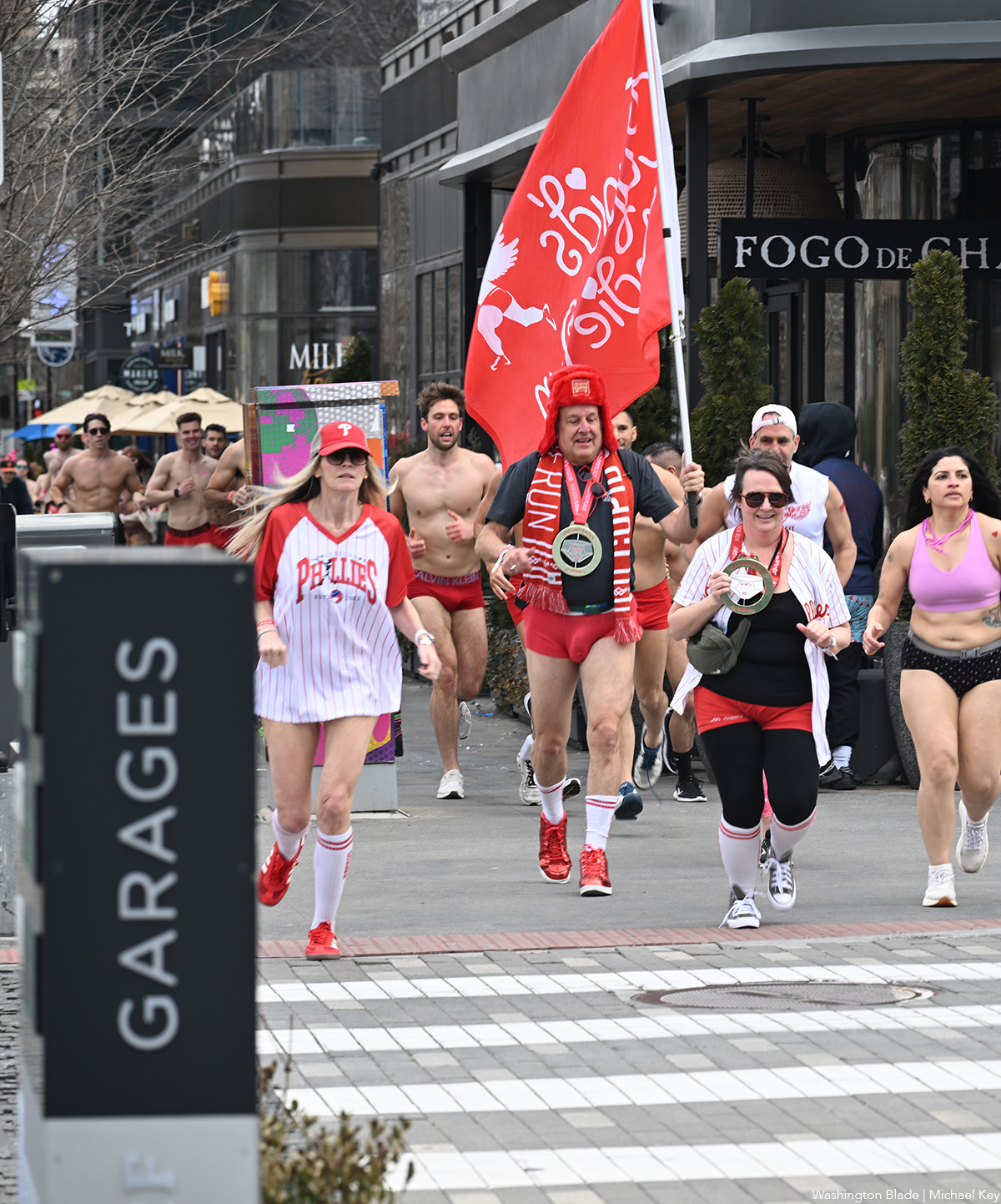

Sweat DC is officially expanding to Shaw, opening a new location at 1818 7th St., N.W., on Saturday, March 28 — and they’re kicking things off with a high-energy, community-first launch event.
To celebrate, Sweat DC is hosting Sweat Fest, a free community workout and social on Saturday, March 14, at 10 a.m. at the historic Howard Theatre. The event features a group fitness class, live DJ, local food and wellness partners, and a mission-driven partnership with the Open Goal Project, which works to expand access to youth soccer for players from marginalized communities.
For more details, visit Sweat DC’s website and reserve a spot on Eventbrite.

Friday, Feb. 20
Center Aging Monthly Luncheon with Yoga will be at noon at the D.C. LGBTQ+ Community Center. Email Mac at [email protected] if you require ASL interpreter assistance, have any dietary restrictions, or questions about this event.
Trans and Genderqueer Game Night will be at 7 p.m. at the D.C. Center. This will be a relaxing, laid-back evening of games and fun. All are welcome! We’ll have card and board games on hand. Feel free to bring your own games to share. For more details, visit the Center’s website.
Go Gay DC will host “First Friday LGBTQ+ Community Social” at 7 p.m. at Hotel Zena. This is a chance to relax, make new friends, and enjoy happy hour specials at this classic retro venue. Attendance is free and more details are available on Eventbrite.
Saturday, Feb. 21
Go Gay DC will host “LGBTQ+ Community Brunch” at 11 a.m. at Freddie’s Beach Bar & Restaurant. This fun weekly event brings the DMV area LGBTQ community, including allies, together for delicious food and conversation. Attendance is free and more details are available on Eventbrite.
LGBTQ People of Color will be at 7 p.m. on Zoom. This peer support group is an outlet for LGBTQ People of Color to come together and talk about anything affecting them in a space that strives to be safe and judgement free. There are all sorts of activities like watching movies, poetry events, storytelling, and just hanging out with others. For more information and events, visit thedccenter.org/poc or facebook.com/centerpoc.
Sunday, Feb. 22
Queer Talk DC will host “The Black Gay Flea Market” at 1 p.m. at Doubles in Petworth. There will be more than 15 Black queer vendors from all over the DMV in one spot. The event’s organizers have reserved the large back patio for all vendors, and the speak easy for bar service, which will be serving curated cocktails made just for the event (cash bar.) DJ Fay and DJ Jam 2x will be spinning the entire event. For more details, visit Eventbrite.
Monday, Feb. 23
“Center Aging: Monday Coffee Klatch” will be at 10 a.m. on Zoom. This is a social hour for older LGBTQ adults. Guests are encouraged to bring a beverage of choice. For more information, contact Adam at [email protected].
Tuesday, Feb. 24
Coming Out Discussion Group will be at 7 p.m. on Zoom. This is a safe space to share experiences about coming out and discuss topics as it relates to doing so — by sharing struggles and victories the group allows those newly coming out and who have been out for a while to learn from others. For more details, visit the group’s Facebook.
Genderqueer DC will be at 7 p.m. on Zoom. This is a support group for people who identify outside of the gender binary, whether you’re bigender, agender, genderfluid, or just know that you’re not 100 percent cis. For more details, visit genderqueerdc.org or Facebook.
Wednesday, Feb. 25
Job Club will be at 6 p.m. on Zoom upon request. This is a weekly job support program to help job entrants and seekers, including the long-term unemployed, improve self-confidence, motivation, resilience and productivity for effective job searches and networking — allowing participants to move away from being merely “applicants” toward being “candidates.” For more information, email [email protected] or visit thedccenter.org/careers.
Asexual and Aromantic Group will meet at 7 p.m. on Zoom. This is a space where people who are questioning this aspect of their identity or those who identify as asexual and/or aromantic can come together, share stories and experiences, and discuss various topics. For more details, email [email protected].
Thursday, Feb. 26
The DC Center’s Fresh Produce Program will be held all day at the DC Center. To be more fair with who is receiving boxes, the program is moving to a lottery system. People will be informed on Wednesday at 5 p.m. if they are picked to receive a produce box. No proof of residency or income is required. For more information, email [email protected] or call 202-682-2245.
Virtual Yoga Class will be at 7 p.m. on Zoom. This free weekly class is a combination of yoga, breathwork and meditation that allows LGBTQ community members to continue their healing journey with somatic and mindfulness practices. For more details, visit the DC Center’s website.
-

 National5 days ago
National5 days agoTrump falsely links trans people to terrorism
-

 Virginia5 days ago
Virginia5 days agoFellow lawmakers praise Adam Ebbin after Va. Senate farewell address
-

 National4 days ago
National4 days agoLGBTQ activists mourn the Rev. Jesse Jackson
-

 Massachusetts4 days ago
Massachusetts4 days agoEXCLUSIVE: Markey says transgender rights fight is ‘next frontier’





